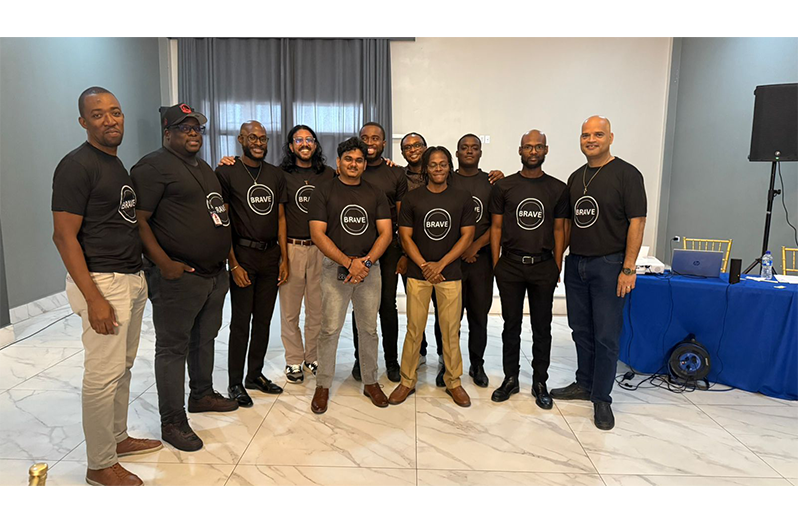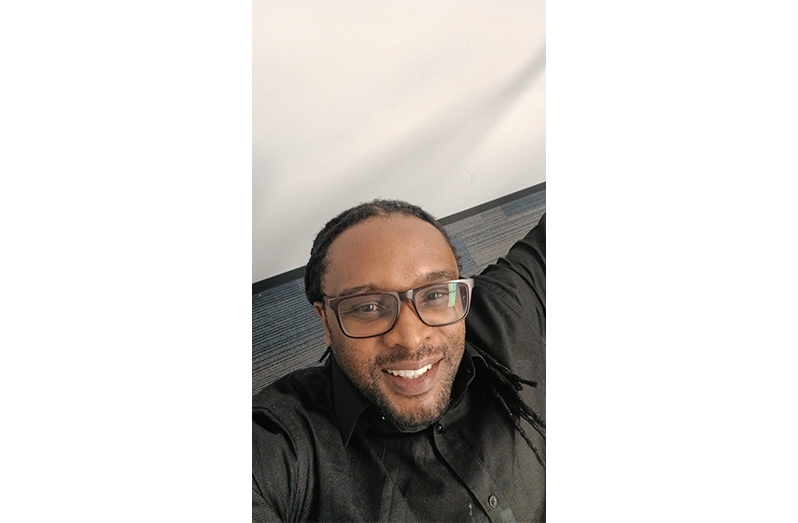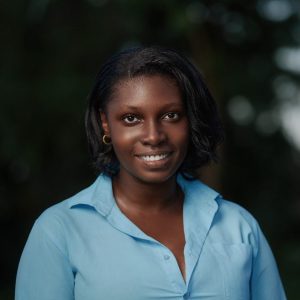On International Men’s Day, the creator of the BRAVE initiative reflects on his journey and what it means to create a safe space for men.
ON November 19, Guyana joined the rest of the world in celebrating International Men’s Day, a day dedicated to recognising men and highlighting the challenges they face. And while the day served as an observance, in Guyana, the BRAVE Centre has pioneered a safe space for men. Rawle Small, the driving force behind Guyana’s BRAVE Centre, traces the programme’s roots to his lived experience as a Guyanese man and to his years of work across policy, research, and community engagement.
Speaking to Pepperpot Magazine in observance of International Men’s Day, he said BRAVE emerged from gaps he repeatedly witnessed in how men were engaged, as well as the absence of safe, structured spaces for men to discuss identity, growth, responsibility, and the challenges they navigate throughout their lives. As he shared, “BRAVE, it’s in the acronym: Build your legacy; Reclaim your manhood; Activate goals; Visualise success; Execute fearlessly.” He added, “The key takeaway is for us as men to be comfortable with who we are as men, not what anyone else says we are. Be your authentic self and build your legacy.”

Small launched BRAVE in July of this year on the ground floor of the West Central Mall in Region Three. While Small was the driving force of the project, collaboration with the Ministry of Human Services and Social Security and the Region Three Chambers of Commerce made the project a success. Small says the BRAVE project has been in the making for a while, an initiative he says was sparked by his own experiences as a Guyanese man.
Small traces the roots of his work back to his early academic journey, recalling how courses in Gender and Development and Women in Development at the University of Guyana fundamentally shifted his worldview. Those classes, he said, opened his eyes to the subtle but powerful ways gender shapes everyday life; how men and women experience transportation, employment, and even household responsibilities differently, often without realising it. The courses forced him to reflect not only on society but also on himself, prompting a deeper understanding of how he was socialised as a Guyanese man and how that socialisation influenced how he moved through the world.
That awakening pushed him further into his career, leading him to pursue a master’s degree in Gender and International Development in Costa Rica, followed by a second master’s in Austria, funded by an additional scholarship. After returning to Guyana, Small immersed himself fully in youth and community development work, taking on roles with the United Nations Volunteer Programme and the Ministry of Culture, Youth and Sport, while also chairing the Youth Policy Steering Committee. He volunteered extensively, especially at the drop-in centre for street children, where he worked closely with young boys and began to see more clearly the cycles of vulnerability they faced.
His team contributed to the family-violence study that informed legislative updates, and they later helped design the Hope and Justice Centres in partnership with UNFPA, the IDB, and the Ministry of Human Services. For Small, this work is deeply personal. “This work has really been part of me, and it’s part of my identity. It goes beyond something I do for a job.” He is also quick to credit the women who shaped and supported his journey, including Dr Yvette Burke, Ambassador Carolyn Rodriguez-Burkett, and Minister Vindhya Persaud, noting that achievements rarely happen alone.
Small explained that one of the core strengths of the BRAVE Project is giving men a space to talk openly with other men about issues they rarely get to discuss. The sessions guide them through major life transitions. As he shared, “We tackle the transition from a teenager into a young adult,” and later into middle adulthood. Moreover, BRAVE seeks to help men understand how to navigate relationships in healthy ways. BRAVE also focuses on grounding men in their personal values, teaching them to reflect on the legacy they want to build for their families, and showing them how to set goals and actually achieve them. The programme encourages men to identify their passions, develop financial literacy and the importance of saving, and understand their sexual and reproductive health.
Terms such as “men as allies” and “toxic masculinity” are doing more harm than good, says Small. The key, he says, is to positively engage men—not as allies or potential threats, but as men. “Many men don’t have opportunities to talk among other men about things in life that might affect them. These include transitioning into adulthood, navigating relationships, understanding values, legacy, setting goals, identifying passions, financial literacy, sexual and reproductive health, understanding rejection, understanding it’s okay to be rejected, understanding rejection does not mean you’re unworthy or have to retaliate.”
While still in its earlier stages, plans to expand BRAVE are already underway. As Small shared, “We will push forward to open about two or three more centres next year. We engage with communities, identify the men, and set up a programme. Each BRAVE Circle is designed to be 90 minutes. It’s a facilitating structured dialogue with men about different things. It’s not about fixing men. It’s about arming men with skills and tools to navigate different experiences at different stages of our lives.” The programme is organised into four key modules: BRAVE Circles, Think Fuh Yuh Self, My Legacy, My Roots, My Life, and Support Through Sports. These modules guide men through self-reflection, personal growth, and healthy ways to navigate life’s challenges. As Small explains, “We are not asking permission to change, we are reclaiming what was stolen: our dignity, our strength and our power to choose differently.”
The real impact of BRAVE lies in its simplicity and structure—giving men a truly private, safe space to assess their hurdles, then equipping them with the tools to tackle them and become better men. “This is important work not just for men but for society and communities. That’s why BRAVE stands for what it stands for.”












